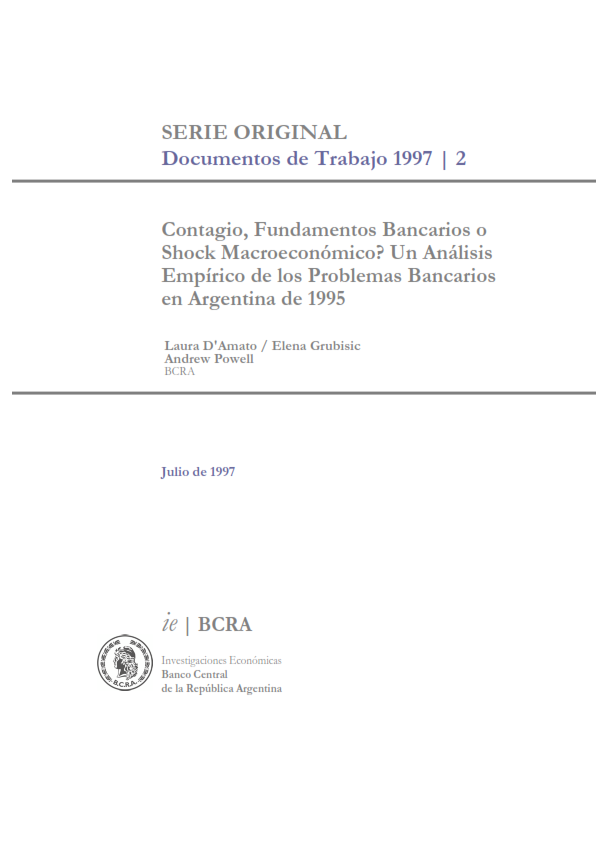Contagion, Banks Fundamentals or Macroeconomic Shock? An empirical Analysis of the Argentine 1995 Banking Problems
Working papers (original series) | 1997 | N 2
Keywords:
Banking crisis, Co-movement, Contagion, Panel dataAbstract
The literature on bank runs is divided into those who suggest that depositors can discriminate well between good and bad banks and those who stress that, due to asymmetric information problems, depositors may run a perfectly good bank when a bad bank in the same system is attacked. This is not simply an academic question, but an issue with significant policy implications. If depositors can indeed discriminate and good banks are not subject to erroneous attack, then the role of a wide safety net for bank-creditors (e.g.: unlimited deposit insurance) is reduced. For a number of reasons, the problems in the Argentine banking system in 1995 provide a unique and highly appropriate case-study to analyze these issues empirically. The focus of this paper is to attempt to delineate from daily deposit-data the effect of ‘bank fundamentals’ from the importance of ‘contagion’ from a third possibility, namely the effects of a generalized macroeconomic shock that might affect all banks in the system simultaneously. We argue that indeed we can separate these effects using panel-data techniques. We find a small number of variables that capture individual ‘bank fundamentals’ and we find several macro variables that are significant. We interpret the residual co-movement in the data as 'contagion' and we also estimate interaction effects directly which appear to eradicate residual co-movement. We find therefore that all three effects were significant in the period and that, although ‘bank fundamentals’ account for 27% of the explained variation in deposits, contagion effects were also present.
Clasificación JEL: C33, E51


